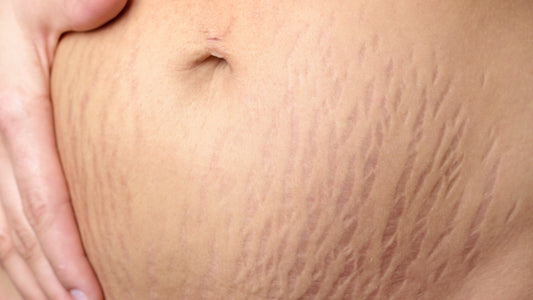
Why You Shouldn't Get A Tattoo
Getting tattooed comes to each of us at a different time. It is not necessary to consult your schedule when ideas come to mind. At this point in your life, the timing may not be ideal. You may not be able to get tattooed due to physical ailments or conditions. Most tattoo shops will not tattoo you if you have certain conditions out of concern for your health. Your health could be negatively affected if you do not disclose your medical conditions to your tattoo artist before your appointment. Do you think getting tattooed would be a good idea?
Reading Guide
1. Some Basic Physical Conditions for Tattoos
2. Under Some Physical Conditions, Tattoos Cannot Be Performed
3. Do Tattoos Cause Blood Disease or Cancer?
4. Conclusion
Please check the details below:
1. Some Basic Physical Conditions for Tattoos
It is not intended to permanently alter the body, since it is a machine.Tattoos are permanent and cannot be removed, so you should think carefully before getting one.
You may want to reconsider getting a tattoo for the following reasons:
- Getting a tattoo involves piercing the skin with a needle, which can lead to potential health risks
- Your skin is thin and easily bruised or scarred.
- If your skin changes color, becomes dry, or develops wrinkles or age spots after getting a tattoo, you may regret it.
- When a tattoo is done improperly or you get an infection elsewhere on your body and transfer it to the tattoo site, it can become infected.
- In the case of allergies, getting a tattoo may result in an adverse reaction.
- Some people may also experience pain, bleeding, or swelling during or after the process.
2. Under Some Physical Conditions, Tattoos Cannot Be Performed
You're too young to get one legally
Getting a tattoo legally is not easy if you're not old enough to go into a professional shop, and your parent/guardian won't (or can't) give consent. Your only option is to get it scratched or do it yourself. Due to the ease with which tattoo guns can be purchased online, this has become a particularly common occurrence. Both methods of tattooing may cause serious infection or disease-and the tattoo you get is certainly not worth it.
Breastfeeding or pregnancy
The majority of reputable tattoo shops won't tattoo clients who are pregnant or breastfeeding. There is always a risk of infection with tattoos. During pregnancy and breastfeeding, the client's baby would also be exposed to these risks. They are also at greater risk as infants because their immune systems are less developed. As well as creating and birthing a child, the body undergoes many changes. Often, shops require clients to wait at least six months after postpartum or weaning off breast milk. Your body will have ample time to recover and return to normal so it can endure and heal a tattoo properly.
Having diabetes
No matter how much diabetes you have, you are still able to get tattooed. The only thing it means is that you will have a lot to think about and address beforehand. Longer healing times are the primary concern. Since tattoo needles pierce the skin thousands of times per minute, tattoos are open wounds. A longer healing time increases the risk of infection and bacteria infecting the wound (tattoo). Those with well-controlled diabetes experience less healing time. A body part with poor circulation or neuropathy may also take a long time to heal. If you have diabetes, talk to your doctor before getting a tattoo, so that your diabetes can be well managed before, during, and after the tattoo.
Having psoriasis
Tattooing can pose unique risks for people with chronic skin conditions. Several factors can trigger psoriasis flares, including medication, stress, allergies, the weather, illness or colds, and injuries to the skin, such as tattoos. Despite this, psoriasis does not preclude getting tattooed. Before getting tattooed, you should consult your doctor to find out if you are a good candidate. It is not recommended that you get tattooed on or near areas that regularly flare up, and your tattoo artist should also avoid doing so. The 'Koebner phenomenon' should also be taken into account. As a result, new flares develop where there have been traumas or injuries in the past. A flare on a new tattoo can delay its healing or cause it to heal poorly.
The eczema
Eczema comes in different types and degrees. The better candidates for tattooing are those who rarely flare up or have small flare ups. A tattoo shop should not be approached by those with frequent, large, or severe eczema. The pigments in tattoo ink can cause allergic reactions in people with eczema due to their sensitive skin. As the skin is punctured thousands of times and foreign particles (ink) are deposited below the skin to create a tattoo, the process itself can cause skin irritations or flare ups. When a new tattoo triggers a flare-up, it runs the risk of not healing well and taking a longer time to heal - which also puts it at risk of infection.
Blood Disorders
The blood system is affected by a variety of disorders and conditions. In some cases, they cause excessive bleeding or clotting problems, which is not ideal for tattooing. Tattoo shops may turn away people with blood disorders due to the risks and issues associated with tattooing. The blood disorders could impair the artist's visibility, extra wiping could compromise the design, and even dilute or push some of the tattoo ink out. The tattoo artist would have to cover these areas multiple times, causing more trauma and pain to the skin - or end the appointment. Blood disorders can also cause tattoos to heal poorly or take a long time to heal.
Medicines that may cause side effects
The chances of getting tattooed are reduced by certain medications, such as blood thinners (anticoagulants). Tattoo artists will not tattoo those taking blood thinners since it can cause excessive bleeding, which is not good while tattooing. Due to the increased risk of infection, those taking anti-rejection medication for an organ transplant should not be tattooed until consulting with a doctor. Medications that treat acne can cause increased levels of pain and discomfort when tattooed, as they make the skin incredibly sensitive. If you are uncertain how your medication will affect your tattoo chances, speak with your doctor.
You aren't sober
Under the influence of drugs and/or alcohol, you cannot get tattooed legally, but it's in your best interest to be sober anyway. Inebriated people make stupid decisions, but that's not even the worst reason. Alcohol thins the blood, which could lead to a messy tattoo that would take a long time to heal. Overall, it's not a recipe for success.
The environment is unclean or unsafe (party or outdoor event)
It may seem exciting to get a tattoo during a party or fun event, but the results are usually disastrous. In professional tattoo studios, sanitation procedures are required even if it "seems clean.".
Unlike at your friend's place, you don't need to follow the same procedures. It's a terrible idea if you don't know who the artist is, what their qualifications are, how clean they are or what elements they might expose you to. The safety of their clients or the outcome of their tattoos is not their responsibility if they are temporary, fly-by-night tattooers. Whenever possible, go to someone you know and trust.

3. Do Tattoos Cause Blood Disease or Cancer?
There are many people who choose to get tattoos because they believe that they will be immune to any health problems that may arise from the ink. However, this is not always the case. Tattoos can actually cause blood disease or cancer.
Blood diseases that can be caused by tattoos include hepatitis B and C, which are viruses that can be transmitted through blood, and leukemia. Cancer that can be caused by tattoos includes melanoma, a type of skin cancer, and Kaposi's sarcoma, a type of cancer that often affects the lymph nodes.
It is important to keep in mind that not all tattoo artists are qualified to do tattoos on people who have health conditions like hepatitis B or C. It is also important to ask your doctor if you have any questions about whether getting a tattoo could potentially harm your health.










